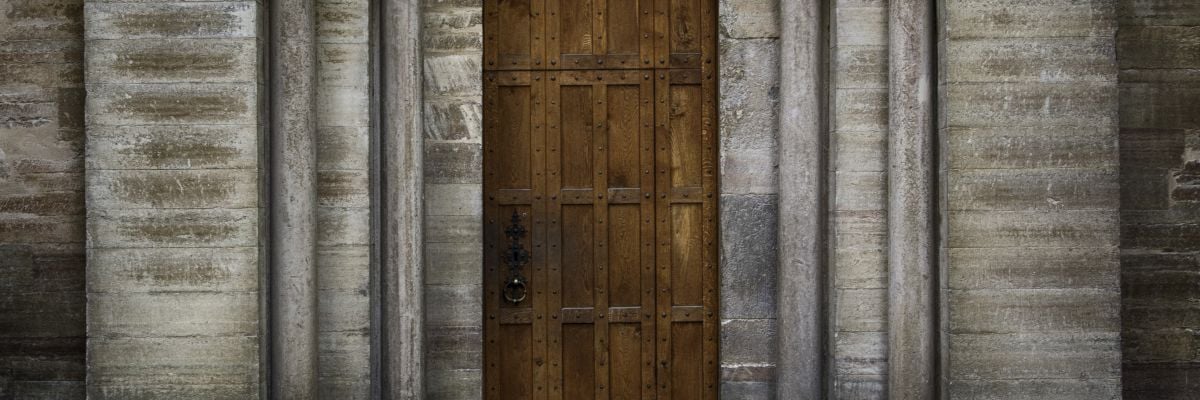
Over the past few days, Catholic dioceses across the world have closed churches and suspended the celebration of Mass and other sacraments in order to halt the spread of the coronavirus, or Covid-19. This has led to a debate among Catholics about whether it is prudent or even right to cancel the public celebration of Mass under these circumstances.
Almost everyone agrees that people who know they have a contagious illness should stay home for the benefit of those who may be particularly vulnerable. Where Catholics disagree is whether it is necessary to suspend Mass even for healthy people out of concern that Covid-19 could spread more rapidly or be transmitted by people who are infected but do not yet show any symptoms.
I believe the decision to suspend Mass must be made on a case-by-case basis, taking into account local conditions. Such a decision involves a prudential judgment, over which Catholics can reasonably disagree. However, I have noticed two arguments being shared over this disagreement that need to be addressed because they rest on false or faulty assumptions.
- “Because Christ is truly present in the Eucharist, it can’t make you sick, so you should go to Mass anyway.”
Once it is consecrated, the substance of the bread and wine offered at Mass become the substance of Christ’s glorified body and blood. This is why the miracle of the Eucharist becoming Christ’s body is called transubstantiation, not transformation.
The form or accidents of bread and wine still remain, which is why too much of the precious blood can still make someone inebriated. It’s also why those who suffer from celiac disease rightly do not receive the consecrated host. The accidents associated with wheat bread still remain even after the bread becomes the body of Christ. This also includes dangerous substances associated with the accidents that still remain even after consecration. For example, St. Thomas Aquinas said:
If it be discovered that the wine has been poisoned, the priest should neither receive it nor administer it to others on any account, lest the life-giving chalice become one of death, but it ought to be kept in a suitable vessel with the relics: and in order that the sacrament may not remain incomplete, he ought to put other wine into the chalice, resume the mass from the consecration of the blood, and complete the sacrifice.
A microscopic organism like a virus can dwell on a host or the edge of a chalice and be transmitted to the person receiving the Eucharist. Of course, most surfaces we interact with have microorganisms on them and the vast majority of them do not cause us harm, so we should not be overly anxious about germs at Mass. In a situation where a pathogen might be present, however, we cannot assume the consecration will provide some kind of miraculous protection against the spread of disease.
- What about the saints who fought plagues with public processions of the Eucharist? Shouldn’t we just trust in what helped them fight diseases?
A popular story being shared right now is that of Pope Gregory the Great, who, it is said, had a vision of the archangel Michael as he led a procession through Rome during a plague in the year 590. According to one source, Gregory saw Michael unsheathe a bloody sword, which was symbolic of God ending the plague he originally unleashed as a divine judgment because of the people’s lack of faith in the Eucharist. Some Catholics say that we should imitate the actions of the medieval Church and combat pandemics by engaging in similar activities in order to stop this pandemic, even if health officials say people should avoid large gatherings.
We should remind ourselves that the Bible says that not all calamities are the result of divine judgment that requires penance to reverse. The book of Job makes it clear that Job had done nothing evil that merited the sufferings he endured (which included an illness that afflicted him with painful sores). When Pontius Pilate killed Galilean Jews during their sacrifices, some Jews saw this as a divine judgment against them. But Jesus told them:
Do you think that these Galileans were worse sinners than all the other Galileans, because they suffered thus? I tell you, No; but unless you repent you will all likewise perish. Or those eighteen upon whom the tower in Siloam fell and killed them, do you think that they were worse offenders than all the others who dwelt in Jerusalem? I tell you, No; but unless you repent you will all likewise perish (Luke 13:2-5).
Jesus’ answer was basically this: sometimes bad things happen for reasons we don’t understand, so repent before those misfortunes remove your opportunity to be reconciled with God before death!
Furthermore, even if Pope Gregory the Great miraculously stopped a plague with a public procession (which some people doubt, because this detail is not in the earliest sources that describe his procession), that doesn’t mean we should count on such miracles routinely happening for everyone else. Miracles, by definition, are effects that don’t always follow our physical actions in the natural world. Question 1154 of the Baltimore Catechism even says, “In all our devotions and religious practices we must carefully guard against expecting God to perform miracles when natural causes may bring about what we hope for. God will sometimes miraculously help us, but, as a rule, only when all natural means have failed.”
Sometimes God allows natural disasters to happen and we cannot guarantee that prayer will end them—just as we don’t guarantee the outcome of any prayer we make to God. Moreover, we now better understand how to fight diseases. That means if we pray to God for an end to a certain pandemic, the answer to the prayer may lie in the practical medical skills he gives us. The Bible even says, “Give the physician his place, for the Lord created him; let him not leave you, for there is need of him. There is a time when success lies in the hands of physicians” (Sir. 38:12-13).
Throughout history, the Church has used both pious and practical remedies to combat disease. During the plague of the fourteenth century (“the Black Death”), Pope Clement VI sought out advice from doctors and even astronomers. They recommended that he keep bonfires lit in his room to keep away “bad air” that was making people ill. In reality, it was not the air making people ill but the bacteria in fleas—though the fires did keep the fleas away and Clement did not contract the disease (he died in 1352 of unrelated causes).
During this plague, Italian towns instituted forty-day waiting periods for foreign vessels called quarantinos, from which we get the modern word “quarantine.” Some scholars believe the reason forty days was chosen is because the number has biblical and ecclesial significance. These quarantines proved so effective that a seventeenth-century Anglican priest in Eyam, England heroically persuaded the townspeople to enact a self-quarantine in order to prevent other towns from being overrun with plague in 1655.
In 1918, Church authorities had great success in reducing the mortality of the Spanish Flu through “social distancing” by closing public venues. St. Augustine’s parish in Washington D.C., one of the oldest African-American Catholic churches in the country, was also closed and amazingly only one parishioner died of a pandemic that claimed over half a million lives in the U.S. and 100 million around the world.
This shows that measures like quarantines, and even suspending the public celebration of Mass, can be justified if the situation is serious enough. Of course, just because something can be done doesn’t mean it should be done, so bishops must prayerfully seek the most prudent solution to this current health crisis. If that involves temporarily suspending Mass, the faithful should resist the temptation to spiritual sloth and remain vigilant and still seek a spiritual communion with Christ. They can even offer up such a communion for the faithful around the world who routinely go months or even years without the sacrament because of a lack of priests. I find this prayer for spiritual communion to be especially comforting:
My Jesus, I believe that you are present in the Most Holy Sacrament. I love you above all things, and I desire to receive you into my soul. Since I cannot at this moment receive you sacramentally, come at least spiritually into my heart. I embrace you as if you were already there and unite myself wholly to you. Never permit me to be separated from you. Amen.



